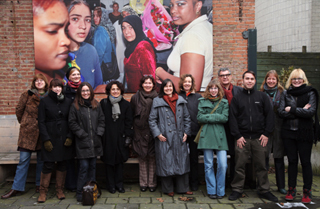HOME
The idea of the European Capital of Culture, the initially called the European City of Culture, was conceived on 13 May 1985 , during the meeting of the Culture Ministers of the European Union by Melina Mercouri, then serving as Greek Minister of Culture.The European City of Culture programme was launched in the summer of 1985 with Athens being the first title-holder.In 1999 the European City of Culture programme was renamed the European Capital of Culture. From 31 December 2006 the legal bases of the European Capital of Culture is the decision No. 1622/2006/IN of the European Parliament.

The European Capitals of Culture initiative was set up to highlight the richness and diversity of European cultures, celebrate the cultural ties that link Europeans together, bring people from different European countries into contact with each other's culture and promote mutual understanding, foster a feeling of European citizenship.
In addition, studies have shown that the event is a valuable opportunity to regenerate cities, raise their international profile and enhance their image in the eyes of their own inhabitants, give new vitality to their cultural life and raise their international profile, boost tourism and enhance their image in the eyes of their own inhabitants. Preparing a European Capital of Culture can be an opportunity for the city to generate considerable cultural, social and economic benefits and it can help foster urban regeneration, change the city's image and raise its visibility and profile on an international scale.
From 2006 two cities – from two different EU countries – are European Capitals of Culture each year. From 1985 more than 50 cities have been designated European Capitals of Culture.Only one Polish city was the European Capitals of Culture – Cracow (2000).







